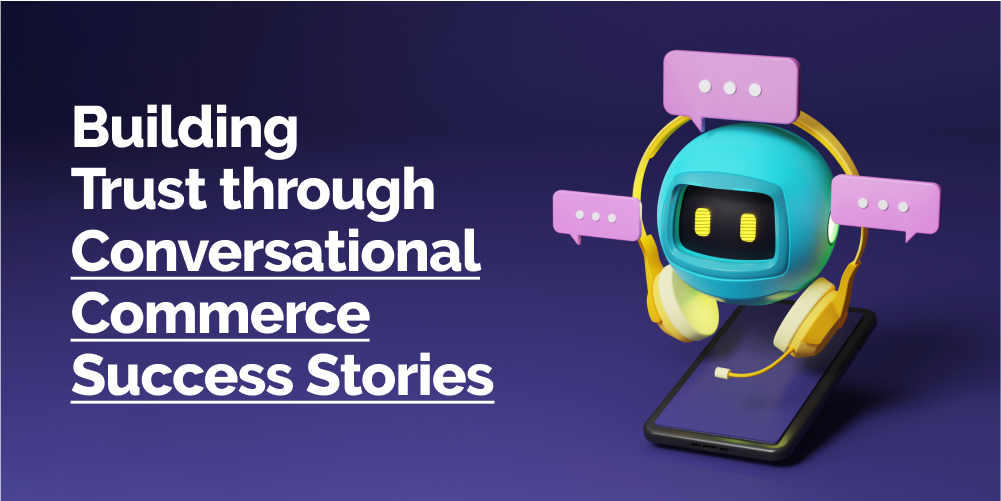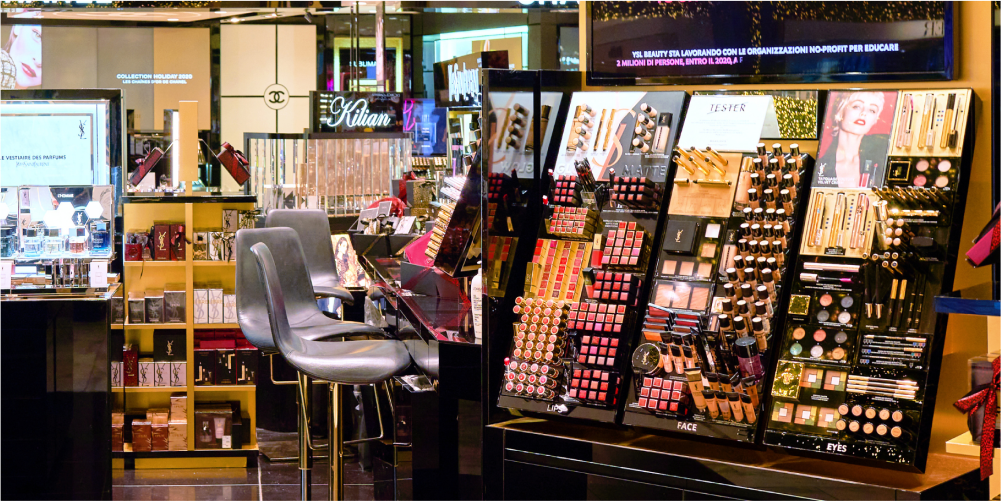Ecommerce Development, zBlog
Conversational Commerce in Action: Real-World Examples and Success Stories for Building Consumer Trust
atif | Updated: December 18, 2023

Introduction
Intuitive conversational interfaces are revolutionizing how modern consumers discover, evaluate, and purchase products online. Forward-thinking companies who have adopted conversational commerce strategies early are already seeing increased sales, higher retention, and greater customer satisfaction.
When effectively implemented, chatbots, voice assistants, messaging platforms and interactive live streams create highly personalized and engaging shopping experiences that consumers love. Let’s explore some leading examples across retail, financial services and fintech, travel, healthcare, and entertainment that are driving this trend:
Sephora Teaches Retailers How Conversational Commerce Upsells Cosmetics

Luxury beauty retailer Sephora has become an industry pioneer within conversational commerce. Their AI-powered chatbot available on Facebook Messenger, Instagram DM, and the Sephora app seamlessly guides ecommerce shoppers through personalized cosmetics recommendations based on skin tone, style preferences, and even ratings of previous Sephora purchases.
The conversational bot also handles most common pre-sales questions to take the load off Sephora’s in-store beauty consultants and customer service team. Published results show Sephora shoppers using their conversational shopping assistants convert to buyers 22% more often and have 11% higher average order values compared to Sephora’s website.
Industry analysts highlight Sephora’s conversational tools as driving higher conversions and order values by intuitively encouraging complementary upsells and cross-sells suited to each customer during interactive shopping sessions.
Capital One Sparks 3X Higher Engagement Rates via Voice Assistants

As an early adopter enabling customers to manage accounts and access support conversations via voice assistants, leading US bank Capital One analyzed engagement data showing credit card customers using Amazon Alexa skills had nearly 3x higher engagement rates compared to Capital One’s mobile app alone.
By allowing key account management and transactions via Alexa’s natural language capabilities, Capital One reduced routine calls to their customer support centers as well.
Additionally, Capital One credit card holders using Amazon Alexa are 11% more likely to add supplemental savings accounts or CDs to their portfolio based on personalized insights and timely recommendations provided by Alexa during in-moment voice conversations.
The bank also sees increased retention and loyalty amongst conversational users, highlighting the ability of voice-based tools to provide the highly personalized experiences consumers demand today.
Hilton Processes 2 Million+ Room Bookings via Messaging App WeChat

Hospitality leader Hilton Worldwide has invested early in China’s booming messaging mobile apps and payments infrastructure. Hilton now processes over 2 million room night bookings per year directly via the popular mobile messaging platform WeChat.
Through a simple conversational interface optimized for Chinese travelers, WeChat users can get hotel pricing and room options, customize the length of stay and room upgrades, and then instantly book and pay – all without ever leaving WeChat.
This tight messaging app integration has allowed Hilton to dramatically increase their share of direct bookings from Chinese consumers rather than letting demand leak to third-party travel aggregators like Ctrip or Expedia.
Published case studies also confirm Hilton sees 30% higher mobile booking conversion rates via WeChat compared to their broader Chinese website and app – showcasing the frictionless commerce capabilities messaging platforms enable.
Personalization Boosts Sales for Retail Giant Lowes

Omnichannel retailer Lowes has also prioritized voice-based customer personalization in recent years as smart speakers gained mainstream consumer adoption. Lowe’s shoppers can now save their real-time shopping cart from Lowes.com or their app right to any Alexa-enabled device, then simply ask Alexa to purchase the items by voice to beat checkout lines.
Lowe’s voice shopping capabilities go beyond convenience though. The home improvement retailer also equips Alexa with personalized recommendations for complementary purchases suited to the known projects and purchase history data of each customer.
As a result, Lowes reports shoppers who adopt voice-based personalized reordering and project planning services demonstrate improvement in customer success metrics, such as an average of 20% higher customer lifetime value.
Tunity App Leverages Conversational Commerce to Disrupt Venue Experiences

Startup firm Tunity has created an ingenious mobile app solution that improves entertainment for tens of thousands of sports fans attending live games and concerts every week. Their smartphone app leverages computer vision and predictive modeling to automatically identify what live event any user is actively attending just by analyzing subtle visual cues from that venue.
Fans simply open the Tunity app during a game for a conversational interface to instantly play the exact live TV broadcast coverage synced perfectly to match their unique in-venue vantage point. No searching for the right channel or syncing delays.
The $14.99 per month subscription service already drives 98% week-over-week retention as early adopters confirm Tunity makes attending live events far easier and more immersive. Over 50 major sports and concert venues have partnered with Tunity as well following successful pilots.
Tunity’s conversational commerce model has eliminated a huge consumer pain point by applying state-of-the-art computer vision technology in a delightfully intuitive way.
The Benefits of Leadership in Conversational Commerce

As these real-world examples showcase, conversational interfaces can transform static product information into interactive and personalized shopping advisors that both inform and delight consumers.
According to Salesforce Research surveyed over 8,000 consumers globally, 61% of all customers expect companies to offer messaging-based, conversational experiences for sales and support. And Gartner Predicts that by 2025, 95% of all customer interactions will be handled without involving a human agent.
First-mover brands who lean into leading this paradigm shift towards conversational commerce are already reaping exponential rewards in stronger consumer loyalty, increased sales productivity, and substantially lower operational costs over the long term.
Most importantly, the natural language processing (NLP) capabilities from companies like Google, IBM Watson, and Amazon Lex that now power chatbots, voice assistants, and intuitive messaging apps also foster greater transparency during the buying process.
Through personalized, two-way dialogue, consumers receive tailored product education, intelligent recommendations, and relevant offers suited to their individual needs.
Conclusion
In conclusion, conversational commerce leverages the latest AI, NLP, and UX design best practices to provide customers with simply delightful experiences. Forward-looking companies who embrace this emerging engagement model will continue gaining strategic advantage in building consumer trust now and for years to come. Trantor‘s innovative technologies and expertise in Artificial Intelligence and machine learning contribute to the seamless functioning of conversational interfaces, ensuring enhanced user interactions. By incorporating Trantor’s capabilities, companies can not only stay at the forefront of technological advancements but also position themselves as pioneers in delivering unparalleled customer satisfaction.




